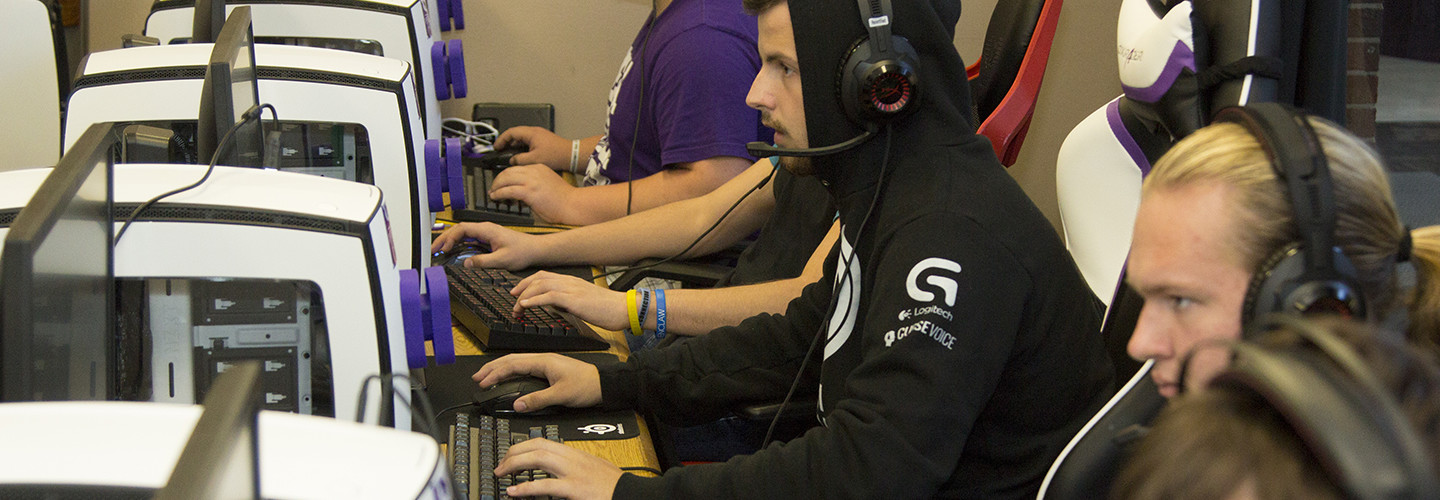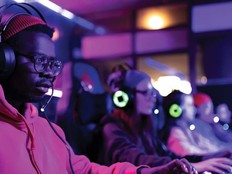Q&A: eSports Steps On to the Field in College Athletics
In higher education, eSports — competitive video games streamed online — is well established as a high-tech pastime. But it’s also becoming the latest entrant in the varsity sports lineup, as colleges create gaming teams and even scholarships. Nationwide, an estimated 22 percent of males aged 21 to 35 watch competitive eSports regularly (roughly the same percentage who watch baseball), suggesting broad interest for games that take place on the virtual field.
At Southwest Baptist University, Head eSports Coach Chris Allison directs the Meyer Wellness and Sports Center and launched the university’s first eSports program. He also runs a consulting business, Program Visioneering, that helps other colleges develop teams and programs of their own.
SIGN UP: Get more news from the EdTech newsletter in your inbox every two weeks!
EdTech talked with him about SBU’s eSports program and how it has grown in the past year. 
EDTECH: How did the eSports program get started?
ALLISON: It began about two years ago. We wanted to figure out ways to enhance our campus community and connect with students that we weren’t already reaching. I’ve been a gamer my whole life, and I knew there was a strong gaming culture on campus, but typically it was happening in small groups in the dorm room. There was real potential for us to create some physical space to bring those virtual communities together.
We pooled funds together, waited for Black Friday and bought enough equipment to launch an Xbox One arena, with consoles, monitors and controllers. Students could use that whenever they wanted to come in. Then we decided to run some gaming intramurals, and for the first semester we had 242 participants. Of those participants, about 140 had not participated in any other intramural sports offerings.
EDTECH: How has your program evolved since then?
ALLISON: In that space, we reached approximately 8 percent of our student population that we weren’t reaching with other programming. That was a huge data point for administration and really backed up my gut feelings. I was doing a lot of research on schools with League of Legends teams and the scholarships they were offering. After several presentations with SBU’s cabinet, we officially launched a varsity League of Legends team last year.
We have 10 players on our roster and they come from a variety of backgrounds and areas of study. We practice about the same amount as other sports teams. Some of that is obviously on computers, but we also incorporate physical and mental health pieces into our program.
EDTECH: Aside from engaging students, how does the team benefit the university?
ALLISON: Our team partners with SBU’s physical therapy school. The professors and some of the second-year doctoral students work directly with the team and lead workouts. They are doing research on the best things a PC gamer can do to protect their wrists and blood circulation. Most of the ergonomics of PC gaming are based on old secretarial studies, so we’re excited about what we can explore with them.
EDTECH: What kind of infrastructure supports the program?
ALLISON: We have a dedicated fiber connection directly into our eSports arena so that we have priority internet for our team. We also have 10 gaming PCs, some of which our team helped build. We’re working on building a streaming station with a high-quality computer, monitors, green screen, light boxes and everything we need to make a high-quality broadcast.
EDTECH: Are there opportunities for students who aren’t interested in gaming but want to participate in the program?
ALLISON: We have a student running our stream for game days who is developing a stream team for other students interested in broadcasting a variety of other games. We also have a student who will be running our social media channels. We are trying to treat our eSports program as a business, with students running social media and marketing campaigns. Because our broadcast channel is monetized, we can partially fund the program through that.
EDTECH: What tips would you offer colleges that want to launch eSports programs?
ALLISON: The No. 1 thing that needs to be worked out is space. You can transition an old computer lab. When we started our club, I got permission to use a computer lab with academic PCs and install League of Legends on the computers. If the machines aren’t already there, you need to make sure you have adequate electrical and networking.
Most schools will freeze their computers so that students can’t make changes to them. You have to have a process in place with IT so that you can maintain current updates of games.
This article is part of EdTech: Focus on Higher Education’s UniversITy blog series.









